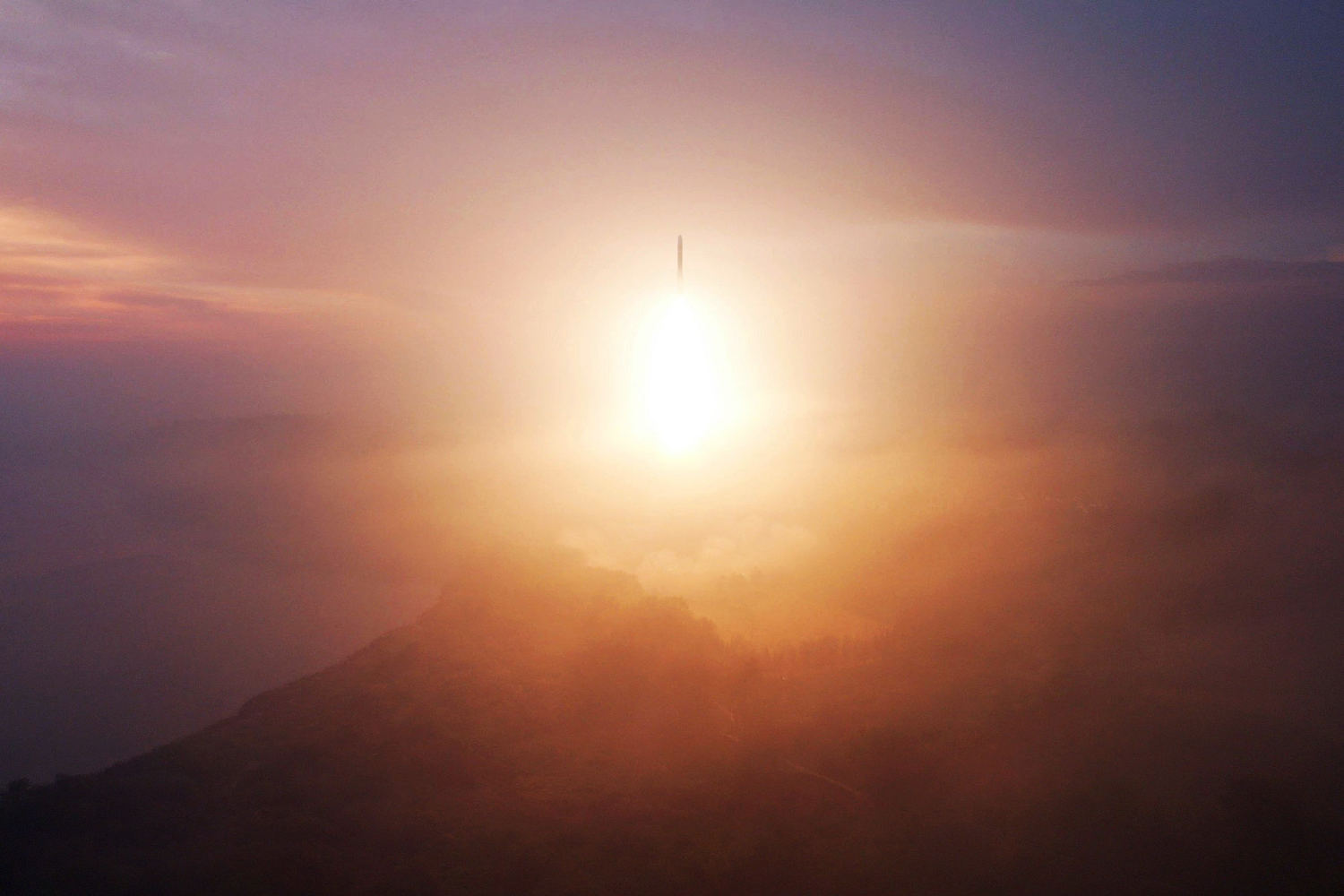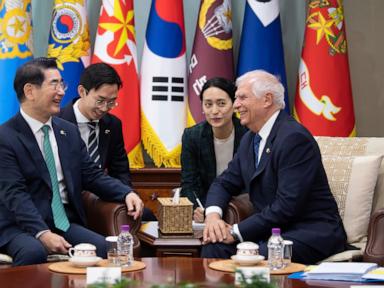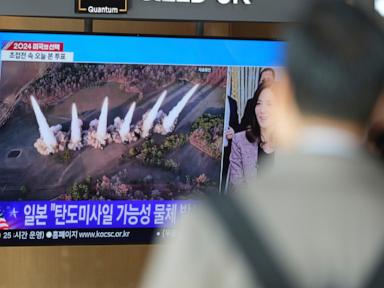Why North Korea is a wild card in the power game in Northeast Asia

President-elect Donald Trump has been talking tough about China for years. He hates China’s enormous trade surplus with the U.S., and who can blame him? There is no doubt China’s President Xi Jinping has done all he can to guarantee China reaps multi-billions in exports to the U.S., producing the goods with cheap labor while violating or circumventing rules and regulations.
All told, these transgressions would seem to justify Trump's threat to impose a 60 percent tariff on imports from China — a quantum leap above the 10 percent jump that Trump proposes on imports from much of the rest of the world. The Chinese will scream, U.S.-Chinese relations will grow ever-more tense, and we will wonder how China will retaliate.
The obvious way would be for China to enhance ties with countries from Africa to the Middle East to South and Central Asia to Southeast Asia and the Pacific. Critical to China’s ever-growing presence is the Belt and Road Initiative that has provided the framework for aggressive Chinese expansionism with military as well as economic implications. Nowhere is the initiative so dramatic as in the construction of a highway across the high Himalayas into Pakistan, winding up at the Arabian Sea port of Gwadar, built and financed by China.
Trump’s incoming foreign policy and defense team, largely untested, might respond with promises to challenge China more or less as the Biden administration has been doing. Optics, however, may be a cover for give and take, for compromise; no one knows for sure. At least one wild card may provide the ultimate evidence of Trump’s determination to thwart China’s exploitation of the rich, ripe, gullible, and still surprisingly free and open American market.
That wild card is North Korea.
It’s all very well for Trump to put on a show of take-no-prisoners bravado, but how is he going to renew his bromance with the unpredictable North Korean leader Kim Jong Un, with whom he professed to have “fallen in love” at their summit in Singapore in June 2018, while feuding endlessly with China, the source of most of the North’s oil and half its food? Kim might like to play the Americans against the Chinese, whose power he resents, but he can’t move too far from the orbit of a nation that towers above his northern border up to the last few miles that North Korea shares with Russia, China’s historic rival.
True, Kim has astutely formed what looks like a rock-solid alliance with Russia, meaning he can afford not to go along with all of China’s demands. Unlike Russia, Xi might not want Kim to view South Korea as an “enemy state,” and he may not be happy to hear Kim threatening to inundate the South with nuclear-tipped missiles.
China, remember, is by far South Korea’s largest trading partner, and China has an enormous embassy in Seoul — much larger than its embassy in Pyongyang. Xi and his deputies and aides see China holding sway over both Koreas, just as the Chinese lorded it over the entire Korean peninsula in the centuries before the Japanese defeated the Chinese in the Sino-Japanese war in 1895 (and the Russians in 1905), taking over Taiwan and, within 15 years, turning all Korea into a colony.
If Trump follows through on his loudly stated vows to put China in its place, to stop the Chinese from devouring American markets while threatening American forces from the South Pacific to the South China Sea and beyond, how’s he going to begin to deal with North Korea?
Trump has indicated he believes Kim might like to resume the dialogue that fell apart when the then-president walked out of their second formal summit in Hanoi in February 2019. They did meet again four months later in the truce village of Panmunjom, where Trump, at Kim’s side, took a ceremonial step across the North-South line, but nothing came out of the meeting. Since then, Trump and Kim may have exchanged love notes, but communications between them appear to have stopped.
North Korea’s silence on Trump’s reelection victory, however, indicates that Kim is thinking long and hard about the relationship.
Sure, by reaching a strong mutual defense pact with Russia’s President Vladimir Putin, Kim has fortified the North in a way that no one had predicted while he and Trump were engaging in summitry, but he has to think through the possibilities of resuming dialogue with Washington. Therein, he presumably believes, lies the possibility that the U.S. may finally recognize North Korea as a nuclear state and give up the mantra of “complete, verifiable, irreversible denuclearization.”
Kim’s game would be to play Trump against Putin, while Trump is also playing up to Putin, looking for a deal for quickly ending the war in Ukraine, letting the Russians keep what they’ve got. Maybe they won’t come to terms in a day, as Trump has long said he could do, but soon enough he would love to lay claim to have settled the war. The North Koreans, now a combatant in Ukraine, would be part of the deal. Might Trump and Kim, with Ukraine in mind, agree to talk again?
Maybe, but how could Trump possibly get tough with China, sending American warships through the Taiwan Straits and the South China Sea, ordering heavy bombers on intimidation flights, while angling for an opening to the North? And how could he maintain what he has wanted the world to believe was at least a courteous, even friendly relationship with Putin while flailing away with Xi?
The Chinese may have no love for Russia, and Xi may resent the tight bond that Putin has formed with Kim, but together the Chinese and Russians are still North Korea’s saviors, guarantors of the North’s survival, as they were during the Korean War.
Trump and his team will have to go through some basic training in the ways and wiles of the Northeast Asian power game. They are likely to find that nothing is so simple as raising tariffs in a stroke or signing a piece of paper declaring “peace” on the Korean peninsula.
One thing for which they are completely unprepared — mentally, psychologically, by background or training — is a second Korean War or a Northeast Asian conflagration that might erupt as tensions rise in a wave of rhetoric beginning with a new trade war.
Donald Kirk has been a journalist for more than 60 years, focusing much of his career on conflict in Asia and the Middle East, including as a correspondent for the Washington Star and Chicago Tribune. He is currently a freelance correspondent covering North and South Korea, and is the author of several books about Asian affairs.
Topics
-

Why North Korea Is Building Drones
Top stories - The New York Times - November 15 -

Why Is North Korea Deploying Troops to Help Russia? Here’s What to Know.
World - The New York Times - October 24 -

‘Blood alliance’: why South Korea fears North’s involvement in Ukraine war
World - The Guardian - October 25 -
Mazzulla's wild NBA rule proposals include power plays, in-game fights
Sports - Yahoo Sports - October 29 -

North Korea test-fires its most powerful ICBM yet, just days before the U.S. election
Top stories - NBC News - October 31 -

North Korea Blasts Unbearable Sounds To South Korea
World - The New York Times - 6 days ago -

Why Michael Learns to Rock Is Big in Asia
Top stories - The New York Times - 4 days ago -

South Korea and EU worry about Russia's technology transfer in return for North Korea troops
World - ABC News - November 4 -

North Korea test-launches ballistic missiles, Japan and South Korea say
Top stories - ABC News - November 5
More from The Hill
-

Biden can still enact Kamala Harris's Opportunity Agenda for Black Men
Politics - The Hill - 24 minutes ago -

Trump Cabinet picks: Here’s who’s on the list to carry out his agenda
Politics - The Hill - 40 minutes ago -

Musk, Ramaswamy ‘DOGE’ confidence in Supreme Court may be tested
Politics - The Hill - 2 hours ago -

Texas tees up likely legal battle with biblical public school lessons
Politics - The Hill - 2 hours ago -

What RFK Jr. could mean for LGBTQ health care
Politics - The Hill - 2 hours ago
